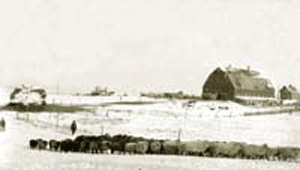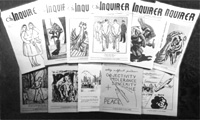Koozma John Tarasoff was born in 1932 to John and Anastasia Tarasoff in the Henrietta District of Saskatchewan, Canada. Growing up in a home, on an isolated farm, and in an environment mainly inhabited by Doukhobors, it is hardly surprising that he would carry the Doukhobor philosophy with him throughout his life.

Tarasoff's grandfather's farm in Saskatchewan

